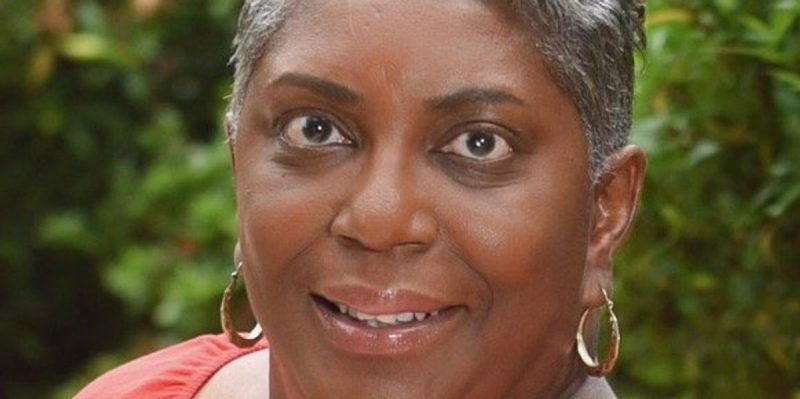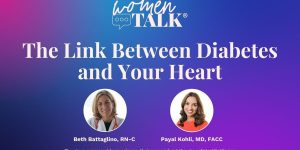My “Small” Cancer Turned Out to Be Stage 4 Breast Cancer

As told to Jacquelyne Froeber
October is Breast Cancer Awareness Month.
December is my birthday month. It was also the month I scheduled all my yearly health exams, including my mammogram.
But December 2014 was busy, I guess. (I burned all my journals from that time — but that’s another story.) I don’t remember why I didn’t go for my mammogram, but I didn’t get one until June 2015.
The day after the exam I got a phone call. There was something abnormal in the imaging, and I needed to have a biopsy. I was a nurse, so I knew that wasn’t great news, but I had the biopsy that week and went about my normal routine.
As an on-call hospice nurse, my schedule was pretty consistent. I worked seven days on, seven days off and — most important — I took a nap between 2 p.m. and 4 p.m.
My husband and kids knew not to call me during that time, so when my phone started buzzing during my nap, I was pretty annoyed. It was the provider’s office. “This isn’t a good time to talk,” I said.
“You have breast cancer,” the woman on the phone said.
“OK, can you call me back tomorrow? I’m on call at 5.”
She was startled. But she said OK. I hung up, rolled over and went back to sleep.
I know it sounds strange to just fall back asleep, but my patients depended on me. And I needed that nap. The next day my provider called and I made the time to listen. He said the cancer was small enough for a lumpectomy. So we scheduled the surgery for the following week.
By that Thursday, though, I’d noticed new imaging requests in my patient portal but no one could tell me why they were ordered.
When I finally got the nurse on the phone, I started asking her questions, and she cut me off. “Don’t worry about the tests — I do this all the time,” she said. “All you have to do is show up on Monday.”
I paused and felt the sting of being dismissed. “You may do this every day, but I’m not diagnosed with breast cancer every day,” I said. “And I will call the doctor and let him know why I’m not having the surgery with you. Have a good day.”
I hung up the phone. My mind and heart were racing. I’d just fired my provider! But I couldn’t stay with an office that wouldn’t answer my questions … right? Tears sprang to my eyes.
My husband helped calm me down and we found a different provider. I’d have to wait another month for the lumpectomy — but that was fine with me. During that time, I had the other tests that were ordered, including a PET scan. That scan showed the cancer had spread to the bone.
I had stage 4 breast cancer.
When I heard the news I was shocked. Within a week, I went from “small” cancer and a lumpectomy to plans for a bilateral mastectomy and chemotherapy. I learned that stage 4 — also called metastatic — cancer meant I would need ongoing treatment probably for the rest of my life.
Amid all the confusion and depressing news — there was a bright spot. My daughter had just found out that she was pregnant despite being told she couldn’t have children. The thought of holding my grandchild gave me extra hope that I could get through the surgeries and treatments and also keep my quality of life so I could enjoy time with my family.
The months went on, and after the baby was born, I’d put him on my chest despite the double mastectomy, and we would sleep like babies on my days off of work.
I continued working as much as I could through chemo but it was tough. I felt weak. I couldn’t even drive to work — my husband had to drive me. But I put on my bandana and pushed forward. In 2016, I got the best news: My scans showed no evidence of disease.
In 2017, I felt good enough to move, and my husband, John, and I relocated to a small town in eastern North Carolina. I got a new job as a hospice nurse.
We were only there for about six months when I had a blood clot in my left lung. Then, because of the blood thinners I was on, I had a ministroke. And then one more devastating blow: My provider said I couldn’t work anymore.
I was crushed. I’d been working for almost 40 years. I was the primary breadwinner in our family. Now, I wasn’t going to have income or insurance.
I spent the next seven days looking for financial resources that could help me pay for my medical treatments. I applied for disability — and got it — but it wouldn’t kick in for five months.
Then I came across an organization called Living Beyond Breast Cancer that offered funding and resources for people with metastatic breast cancer. They were hosting an annual conference in Philadelphia, and I decided to go.
At the time, I really didn’t know much about metastatic breast cancer outside of my personal experience. I’d also never met another Black woman with metastatic breast cancer. When I walked into the conference hall, I was blown away by the sheer number of people there. I probably looked like a deer in headlights going from booth to booth, but everyone was so kind and helpful. I got the financial guidance I needed. I heard stories from women who were eight and nine years into their diagnosis and thriving. I bonded with other Black women with metastatic breast cancer. All of it changed my life.
After the conference, I signed up for everything I could do as far as advocacy work for the organization. I traveled all over the U.S. and learned about the disease and new treatments and brought information back to my rural community in North Carolina. I’d learned that breast cancer rates are higher in women who live in rural areas and death rates are higher too compared to the national average. And these numbers are worse for women of color.
Early on, it became clear to me that information regarding Black people and metastatic breast cancer was lacking. But it wasn’t clear why. In 2019, I started working with an epidemiologist, Marina Pomare Kaplan, on a research project and survey that focused on the reasons why Black people weren’t being included in these clinical trials.
Unfortunately, Marina passed away in 2020. I thought that meant our research efforts were done, but a few months later, the Metastatic Breast Cancer Alliance contacted me and wanted to move forward.
We started the BECOME research project based on the research Marina and I had been doing. BECOME stands for Black Experience of Clinical Trials and Opportunities for Meaningful Engagement. And what we found with our survey was a big shocker. The overall reason why Black people weren’t being involved in clinical trials? It was because no one was asking us to participate. No one was having a conversation with us.
From there, I thought, Let’s find a way to get this information to providers. We planned an event the day before the San Antonio Breast Cancer Symposium in 2022, which is basically the biggest breast cancer conference in the world. It was my goal to have 100 people there — or fill half the seats in the room.
But that didn’t happen. The event was so packed I had to grab spare folding chairs. People lined up against the wall to listen to our research.
As I looked out at all the different faces in the room, I was overcome with emotion. I felt so proud to get all these people — providers, pharmaceutical reps, women of color — together in the same room to learn about the importance of including Black people in clinical trials for metastatic breast cancer.
I thought about how far I’d come in my own journey — although I hate to call it a journey. It just doesn’t sound right when you’re talking about being bald and going to chemo. But being a patient advocate helped me help other people when I couldn’t through nursing anymore.
None of us signed up to be in this club. But all of us deserve representation and research to help us live our best lives with metastatic breast cancer.
Resources
BECOME – Black Experience of Clinical Trials and Opportunities for Meaningful Engagement
Have a Real Women, Real Stories of your own you want to share? Let us know.
Our Real Women, Real Stories are the authentic experiences of real-life women. The views, opinions and experiences shared in these stories are not endorsed by HealthyWomen and do not necessarily reflect the official policy or position of HealthyWomen.
From Your Site Articles
Related Articles Around the Web








